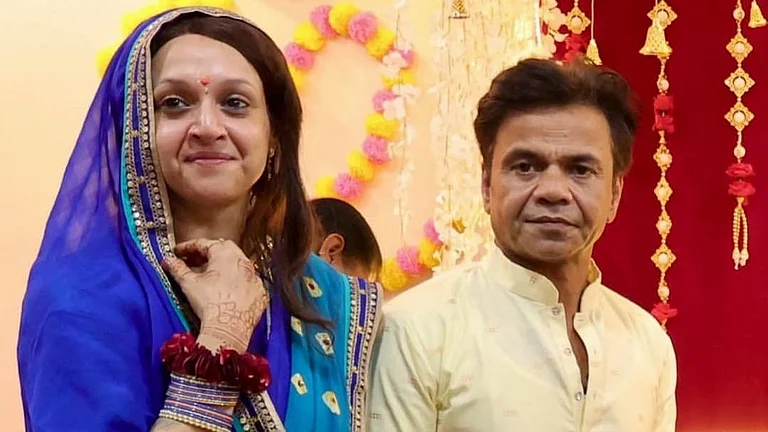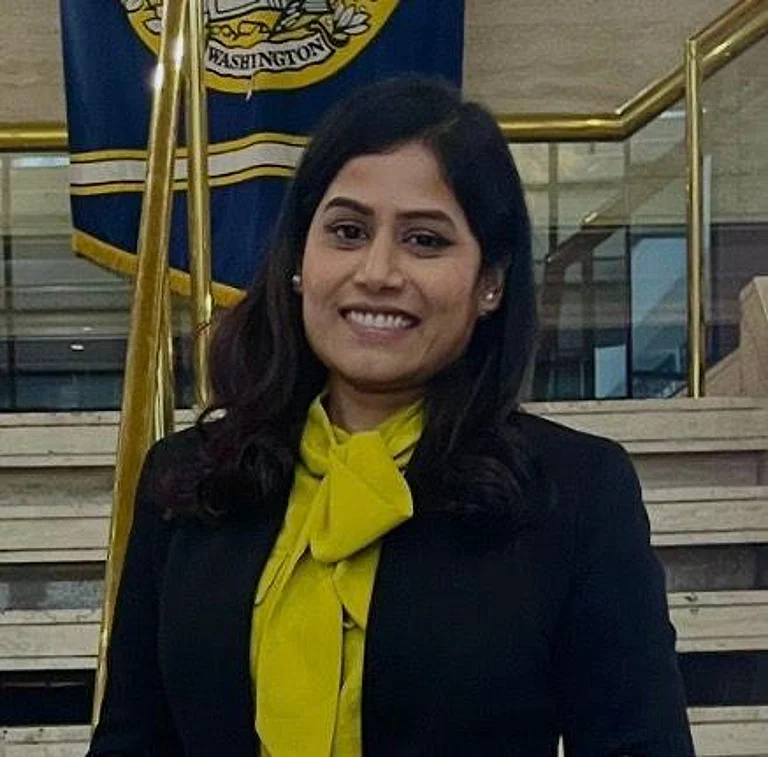
George Bernard Shaw once asked an attractive woman seated next to him at a dinner table, "Madam, would you go to bed with me for a thousand pounds?" The woman shook her head. "How about 50,000 pounds?" he continued. The woman, after further thought, coyly replied, "Perhaps". Shaw continued, "How about five pounds?" The woman exclaimed, "Mr Shaw, what do you take me for!" Shaw replied, "We have already established what you are. Now we are merely haggling for the price."
In the great Indian education bazaar, everything is up for sale—government, media, educational institutes, foreign faculty, collaboration with foreign universities, endorsement of teaching shops by reputed names to build credibility, and the parading of successful candidates in competitive exams as alumni. The only issue is price, and you can haggle over it. "I threatened one institute with legal action if it uses my name in its brochures," says a topper whose name it was using to position itself in the market.
My last column (Racket Game Lobs, June 30, 2008) evoked strong response, depressing and stunning at the same time. It prompted honchos from educational institutes to meet me, some with clarification, others with advice. The teaching community logged in their support. Students and their parents responded, most choosing to remain anonymous. Says a parent, "My son joined the BBA course offered by a Delhi-based institute. Mortgaging my house in Bihar, I paid Rs 12 lakh as fees, only to realise later that it wasn’t accredited by the UGC. Worried, I admitted my son to the Delhi Open University too. My son now studies in two institutes, hasn’t any time for himself, and has gone into depression and developed suicidal tendencies."
Representatives of the concerned institute respond, "The parent should not have just gone by the advertisements. These are meant to attract students for our business." Writes a frustrated professor who gave up teaching, "The impotent rage I felt during those years as a professor, about kids literally crying their hearts out but still refusing to come out in the open, has killed all traces of compassion in me."
The problem starts with the University Grants Commission (UGC), the All-India Council for Technical Education (AICTE), and the Human Resources Development (HRD) ministry. An entrepreneur who had gone to register a distant education course that could be enabled on the Internet was told, "The normal process takes a long time and as your course is on the Internet, it may not pass at all. Saheb, aap hamari dekhbal karo aur hum aapka kaam karva denge (You take care of us and we will ensure that this course gets UGC recognition)." The rules of the game are weird. "They are more bothered about floor space, toilets and the like. I can rotate faculty across five programmes and they won’t care two hoots," says the professor.
Bureaucrats exploit an impotent society and an overburdened judiciary to earn slush money. Good institutions are harassed; bad ones are indulged. "We have a strange case in which AICTE and UGC advocates got together and had a private advocate file a PIL—all for a ransom," says a noted educationist. And for the bad institutions, there are middlemen who help them get out of trouble "We realised that the solution to all the complaints against us lay with a person in Punjab, who had all the right connections," says a representative of another educational institute.
The media comes out completely scarred. "I can’t even write about a good institution like the isb, for then the biggest advertiser would have a problem," says an editor of a leading English daily. "There is pressure on me to have the dean of a private institute featured on my front page," says another editor. Articles with misleading facts are planted in the media, and come in handy for those who resort to advertisements to gain credibility.
Business school rankings and awards are up for sale; the price is paid through advertisements. "If you push us up by a couple of ranks, it wouldn’t be noticed by anyone," an institute once said to me. They entice publications through other methods. For instance, four months into the launch of Outlook Business, a private university awarded us, calling us the ‘best business magazine’. A few years ago, Outlook was named for ‘the most popular magazine amongst the masses’ award. Though I had made public my deep suspicion and dislike for such honour, I was once offered an ‘entrepreneur with social consciousness’ award.
The nation watches in dismay as the game goes on. They fleece and post lavish profits. No questions are asked. No taxes are paid. There are no regulations. Glance at advertisements featured in leading Indian publications. People who shout the most are the biggest liars. Often, the job placement figures and the salaries offered are not even half of what is claimed. "What some of these so-called MBA institutes produce is kids who know how to wear a tie and spout jargon that would only help them sell an insurance policy. So why should we pay pounds to buy peanuts?" asks a source closely linked to placing students in jobs. Those who can’t grant MBA degrees because they lack the mandatory AICTE approval find these can be secured from private universities in Chhattisgarh or Europe.
A student visited an international business school in Europe whose degrees are hawked in India. He now writes, "We walked into a college which is not bigger than my 4,000 sq ft house and we could meet only two people during our entire stay." This foreign institute isn’t even recognised by its own government. A parent, whose son went on one ‘international study tour’, adds, "All my son did on the tour was to visit a few nightclubs. He had a lot of fun at my expense. It was never a study tour."
To create an image, some institutes invite international professors to lecture on one of their campuses. The professors allow their names to be used, obviously for the right price. Teachers who haven’t visited India in the last five years find their names mentioned under visiting faculty. The new game is consulting and executive education. Investigating a recent executive education advert by an institute which claimed that it had tied up with a couple of prominent global universities and B-schools, we realised that their contribution was a mere two per cent of the entire course content. In times of financial crunch, even the best global institutes and universities are up for sale—for the right price. A mail to these universities elicited a panicky response or silence. They left it to their Indian partners to ‘manage’ the Indian media.
The realisation that you have been taken for a ride sinks in—often very soon. As I write this column, another student has committed suicide in Delhi. And the lies continue. The facade goes unchallenged. Corruption thrives. Slush money pours in. Unemployable manpower grows. Employable manpower is a trickle. An overburdened economy is made to pay more for the trickle. A poor population is forced to borrow to educate children—no returns guaranteed. The income gap widens. The economy weakens. The India growth story is challenged. A professor who was harassed for being a whistle-blower and forced to resign says, "If a person like me cannot make an honest living in this country, I would be more concerned about the country’s future than for myself." This is The Great Indian Nightmare.
(Are you concerned? Want to make a difference? Please write to us at mp@outlookindia.com)























